As You Like It | Interview | ‘Ages Come And Ages Go’
As You Like recorded a stunningly complex progressive rock led by Hammond organ and mellotron, these studio tracks recorded between 1973 and 1975 are a significant discovery for fans of Gentle Giant, Yes, Fantasy, Spring, England, Genesis and Caravan.
RCA offered them a contract which fell through, otherwise they could have been issued on RCA Neon. Their earliest surviving studio sessions date from 1973-1975 and reveal a superbly polished band playing pastoral prog rock The recordings under the name of ‘Ages Come And Ages Go’ were never issued before and are now available thanks to Seelie Court.
As You Like It was formed in the latter part of 1972. Paul Vincent Myerson (bass), Paul King (drums) and John Ellis (keyboard) had been playing together in Norman Mitchener’s covers band The Beachcombers (former members included Keith Moon) but had broken away to pursue original material. After a couple of relatively short-term guitarists (the first being session player Laurence Juber, a friend of John’s from music college who went on to join Paul McCartney’s Wings), the lineup was consolidated when Martin Paine was invited to join in the Spring of 1973. Martin’s own original material band, Bruin (members over time included Harold “H” Vickers, formerly of Dr. K’s Blues band on bass and saxophonist Richard Blanshard, who later played in Kim Wilde’s band for a number of years) had been active on the London area clubs and colleges circuit, supporting, amongst others, jazz-rock band If, progressive rock outfit Skin Alley and Supertramp. On November 12 1972, Bruin were again supporting Supertramp at the Sirius club in Southgate, N. London (that was the night Roger Hodgson asked to try Martin’s Marshall amp, but was unimpressed – “too clean” – so sent his roadie out to the van mid-set to drag in a very battered Vox AC30!) to find an additional combo on the schedule, which included Paul Vincent Myerson, Paul King and John Ellis, who were possibly playing some kind of showcase (no one can quite remember..!) Paul Vincent Myerson and Martin Paine already knew each other slightly as both worked at that time at Polydor records, so when As You Like It were looking for a replacement guitarist Paul approached Martin, to discover that Bruin had recently broken up, and thus the stage was set! As was often the case at that time, a local businessman and property developer (whose nephew was a close friend of Paul King) wanted to dip a toe into the “glamorous world of music” and allocated a “shed” on his farm (the chickens had been evicted) in which the band could rehearse, and a “manager” (of sorts), Tay Devlin, who we believe also managed Cross and Ross (Keith Cross, formerly of prog rock outfit T2, and Peter Ross). Following several months of writing and rehearsing, As You Like It went into the RG Jones studio in Wimbledon to record several demos, all included here. The band essentially ended up mixing these themselves as the producer lined up, Dave Hitchcock, who had previously worked with Genesis, Camel and Caravan amongst others, left the premises early after some kind of disagreement with Tay. Not to be put off, the band continued writing and rehearsing and during 1974, Gerry Dane, who is believed to have previously been involved with the UK office of Buddah Records (whose roster included Melanie, The Edwin Hawkins Singers, The Isley Brothers, Gladys Knight and Curtis Mayfield) came on board as producer/manager.
At New Year 1975, Gerry took the band into Chalk Farm Studios, N. London, where they laid down a further set of demos (some excluded here due to vinyl run time limitation). The band was “excluded” from the mix and were not entirely happy with the final versions, although with modern technology, these have been (greatly) enhanced for this album release. Despite some interest by record labels (RCA in particular considered signing the band), nothing came of these recordings and the band decided to call it a day, at least as a writing/recording outfit. They did, however, continue playing together for some while as a covers band and continued to collaborate on subsequent demo recordings of songs written by Paul Vincent Myerson and Martin Paine.
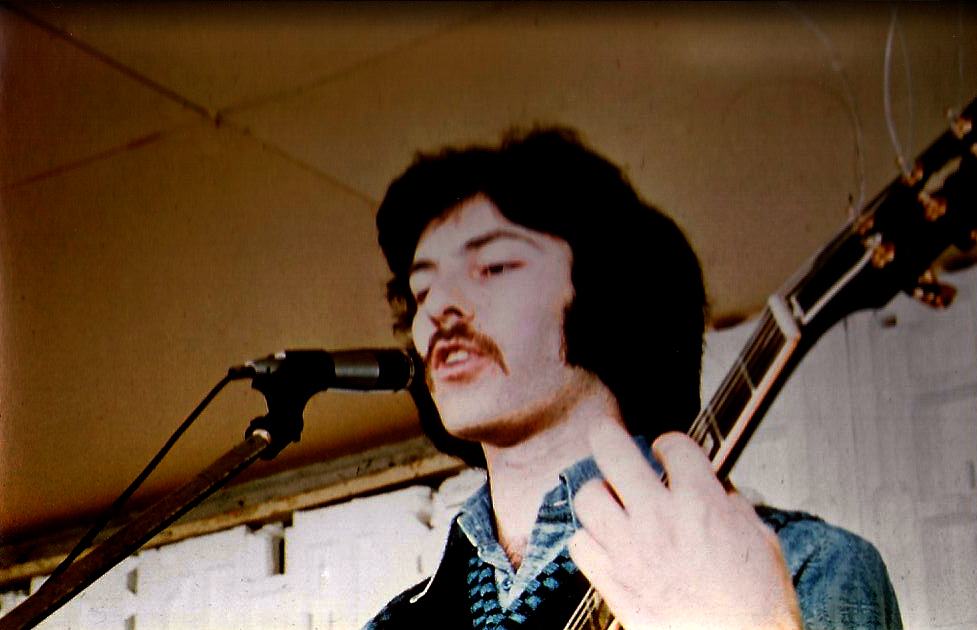
Where and when did you grow up? Was music a big part of your family life? Did the local music scene influence you or inspire you to play music?
Martin Paine: I lived in Taunton until I was 14. There was always music in the house – my elder brother played classical piano and violin and we both sang in the school choir. My father was very musical and had taught himself to play piano. I was too young to be aware of any local music scene, although there undoubtedly was one.
Paul King: I grew up in Potters Bar and music was huge in my home. My mum was a jazz singer in her late teens, early twenties and sang in clubs in South Wales. My dad played double bass, guitar and piano and owned one of the best hifi systems in our street. Music was always playing in our house, mainly jazz but I enjoyed quite a bit of it. My parents were very friendly with a local jazz musician, Terry Lightfoot and it was through their friendship that they managed to get Terry’s drummer Johnny Richardson to give me lessons.
There were quite a few bands in and around Potters Bar. To earn money to pay for my lessons I used to wash people’s cars at the weekend, one of them was Spencer Davis, which led to me also washing Steve Winwood’s car.
Paul Vincent Myerson: I grew up on the border of North London and Hertfordshire where I lived from 1949/72. My mother was a keen musician, she could play on piano by ear, though she didn’t read music she used the Do-Re-Mi method to pick out melodies. Fortunately I did inherit her gift of playing by ear which enabled me to play along with other musicians even when the song was unfamiliar. I learnt classical piano from an early age until at thirteen I picked up a friends’ guitar and took to it and as the song says “played it till my fingers bled.”
What bands were you a member of prior to the formation of Tales of Justine and The Syndicate?
Martin Paine: After moving to Harrogate, aged 15, The Syndicate was my first band, formed initially with school friends. My dad used to take us to our earliest gigs as we were too young to drive! My first gigs were done with my 4w Selmer Little Giant amp!
Paul King: My first real band was called Tomorrows Weather. We played gigs in and around Potters Bar, including pubs, private parties and clubs. I was only 15 so my dad used to take me and pick me up for which I have always been grateful.
Paul Vincent Myerson: With various friends we formed a few bands in which I played lead guitar. In 1965 with my current drummer we saw a thirteen year old playing at a school concert, we immediately coerced him to join our band, and I immediately handed the role of lead guitarist to him and switched to keyboard and bass. David Daltrey was a precocious but very talented guitarist, vocalist and songwriter and most of our repertoire ultimately were songs written by him (and me to a large extent).
After many years of classical piano tuition from which I really didn’t achieve much, aged twelve I tried playing a friend’s guitar, loved it and ultimately bought a Spanish guitar from my parents friend, classical guitarist Ivor Mairants, and taught myself some chords and a few guitar licks. I joined my friend Nick Brown as we mimed to early Beatles records while Nicks’ father filmed us on his cine camera. We then realised we could at least play passable copies of these songs and involved other friends to join us. With usually five members the least accomplished musician was relegated to vocalist, but we all tried hard to learn and play the hits of the times especially The Shadows instrumentals. I usually managed to be lead guitarist!
One of my first paid gigs was on Totteridge Green (north London) in June 1965, with Nick Brown on drums and Simon Nicol (who went on to form Fairport Convention) on guitar and vocals, and we barely had the amplification in those days for an open air venue and although the crowd politely applauded, we all learnt that a decent PA system would be imperative for the future. Soon after, when I was in another school group with drummer Bruce, we watched a younger (thirteen year old) David Daltrey perform and we both were astounded with his guitar playing, and immediately asked him to join The Court Jesters, which later evolved as The Tales of Justine a three-piece band with Dave on guitar and vocals, Bruce on drums and me on keyboards and occasionally bass.
If I’m not mistaken, Tales of Justine released two singles. His Master’s Voice issued ‘Albert’ and ‘Monday Morning’ and on EMI you recorded a demo of ‘Sitting On A Blunestone’. What can you tell us about it? Did it receive any airplay? What kind of gigs did you play?
Paul King: My memory isn’t wonderful but I do remember playing at Middle Earth (might have been Gandalf’s Garden) as well as lots of local youth clubs. I have very fond memories of recording at Abbey Road but as I took over from Bruce, who very sadly died, I can’t categorically remember which tracks were me and which were his.
Paul Vincent Myerson: Our early influences were Tamla Motown and soul music and moving on to progressive rock throughout 1966 and early 1967. With residency at London venues playing alongside Pink Floyd, Crazy World of Arthur Brown, Marc Bolan and many others. The Tales of Justine caught the attention of Tim Rice and with Andrew Lloyd Webber took over management and got us into Abbey Road studios for a recording test in June 1967.
In 1997 there was a compilation of your material issued. What can you tell us about the material on ‘Petals From A Sunflower’? Is there anything else unreleased?
Paul King: I’m sure there’s quite a bit that wasn’t released but I can’t remember much more than that.
Paul Vincent Myerson: We recorded about five songs in the three hour session, many years later to be released on ‘Petals from a Sunflower’. In October that year EMI released the single ‘Albert’ which although played a few times on the new Radio One sank without trace. Its only saving grace was having John Paul Jones on bass. Had the b-side ‘Monday Morning’ been played things would certainly have been different for the band. Arranged and produced by Tim and Andrew it was far more representative of The Tales and has subsequently had several releases on compilation albums. Another track ‘Sitting on a Blunestone’ was recorded in Denmark street (Tin Pan Alley) along with various tracks in Abbey Road over the next two years. None of these songs were released at the time. The reason allegedly was as EMI had Pink Floyd they didn’t need another psychedelic band to promote. As Tim and Andrew moved on to. ‘Joseph and the amazing Technicolour Dreamcoat’ and ‘Jesus Christ Superstar’ which involved The Tales to some extent, the band was forgotten, our drummer Bruce left and moved to the West Country where he died in a road accident. Another pupil at our school, Paul King, was brought in on drums. The band for some time playing original material continued to gig for a while till it did a farewell concert in It’s home town, Potters Bar and disbanded.
After seeing an advert in Melody Maker I joined The Beachcombers and spent three years on keyboards and latterly on bass gigging extensively through the south of England. During a reunion of previous members I met Keith Moon and spent a memorable evening talking with him.
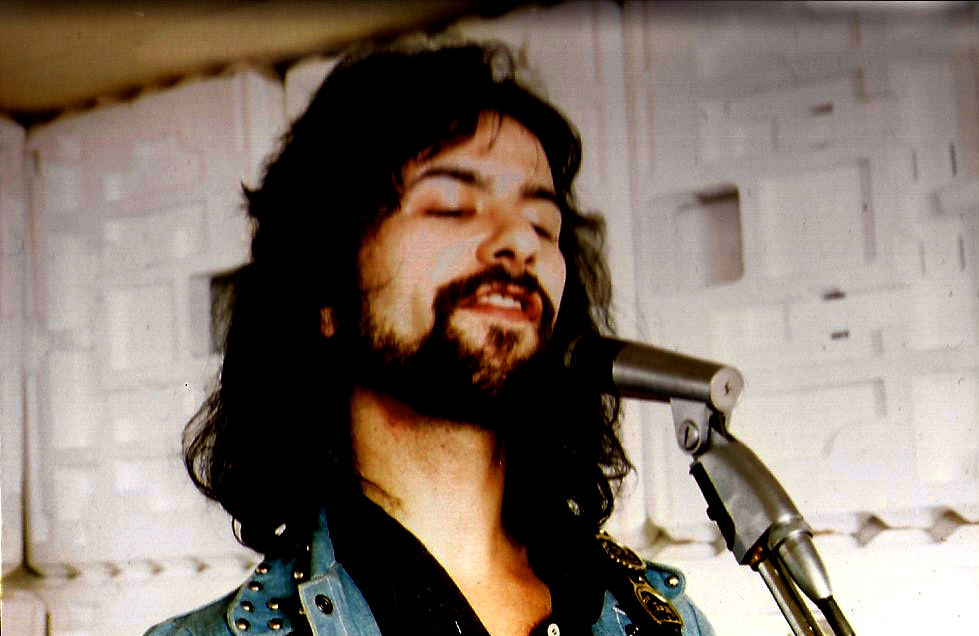
What about The Syndicate? Who were members of this band? Please share some words about it.
Martin Paine: We played covers of The Beatles, The Rolling Stones, The Shadows et cetera at local youth clubs, dances and the like. The 2nd guitarist stayed throughout the duration of the band but we had a succession of drummers. The original bass player was replaced quite early on by Ian Eyre, who would later join Curved Air at the height of their success. The Syndicate broke up for “A” levels and afterwards I formed Genesis, still with Ian on bass, but now playing Hendrix, Free, Cream, Bluesbreakers et cetera. In 1970 I moved to the London area and formed Bruin with a view to playing original material.
How did members meet to form As You Like It and when was this?
Paul King: Paul, John and I had been playing in a “function” band called The Beachcombers. We were a covers band and were pretty good but the three of us didn’t want to play covers forever. We all resigned at the same time, a horrible thing to do in hindsight but we were focused on writing and playing our own compositions.
Martin Paine: By coincidence, both Bruin and John, Paul and Paul (and someone else who no-one can remember) both supported Supertramp at a gig at the Sirius Club in Southgate (I already knew Paul V M, as we both worked at Polydor Records). Not long afterwards Paul Vincent Myerson came to find me as they needed a guitarist….
Paul Vincent Myerson: As You Like It were formed after the Beachcombers had latterly added Paul King as drummer and John Ellis on keyboards, the three of us felt our musical talents were somewhat wasted constantly playing covers and we began rehearsing with Laurence Juber on guitar. Laurence went on through session work to join Paul McCartneys’ ‘Wings’. Martin (who I met when we both worked at Polydor Records) joined us and with his original songs, playing and singing perfectly fitted in and As You Like It were complete.
Did you have a rehearsal space where you shared all the ideas together?
Paul King: We started rehearsing in a wooden sort of garage which was part of a pub that my dad used to manage, in Stanmore, Middlesex. This was pre Martin Paine and back then included Lawrence Juber. It wasn’t too long before Lawrence left and Paul Vincent Myerson introduced Martin, a great addition as he also sang and already had some great compositions.
When and where did As You Like It play their first gigs? How was the band accepted by the audience?
Paul King: After Martin joined we were offered a rehearsal space on a small farm that belonged to a friend’s uncle. The initial problem was that it had been a chicken shed and stunk. There was also a challenge with the electricity supply, which kept blowing but it wasn’t long before we got it sorted and cleaned up. It was great as we could leave all our gear set up and be ready to go as soon as we walked in.
What did your repertoire look like?
Martin Paine: It was all original material, although during rehearsals we’d sometimes jam or play a bit of Yes, or The Nice or even The Carpenters!
Paul King: I don’t remember playing material other than ours. We were all impressed with the likes of Yes, Emerson, Lake & Palmer and Genesis, but I don’t recall playing any of their material.
What sort of venues did you play? What bands did you share stages with?
Martin Paine: We didn’t really gig much, just wrote and rehearsed with a view to trying to get a recording contract.
Paul King: We didn’t do anything like what we were worthy of. There was a venue in Islington. I think it was called The Hope & Anchor and we entered and won a Battle of the Bands contest which was at a pub in Walthamstow (Martin – I’m pretty sure it was the Green Man at Leytonstone. The song we played to win the final was ‘Ages Come, Ages Go,’ which is on the album) maybe Leyton, not too sure.
How did you decide to use the name “As You Like It?”
Paul King: I don’t remember where the name came from, but I hated it!!
Martin Paine: Paul King also wrote a song with the same title – I can’t remember which came first.
Paul Vincent Myerson: From memory the name was suggested by me after the Shakespeare play. The band became proficient after rehearsing 3/4 nights weekly, and took several songs into RG Jones studio, which we produced after our manager and hired producer fell out.
What influenced the band’s sound?
Martin Paine: I was a big fan of Yes, who I first saw in, I think, early 1970 (they were supporting The Nice, who they blew off stage!). Also much influenced by Jimi Hendrix and Peter Green (and, of course, The Beatles)
Paul King: Yes, Genesis, Emerson, Lake & Palmer, Traffic, Pink Floyd, The Beatles and so many more all influenced me.
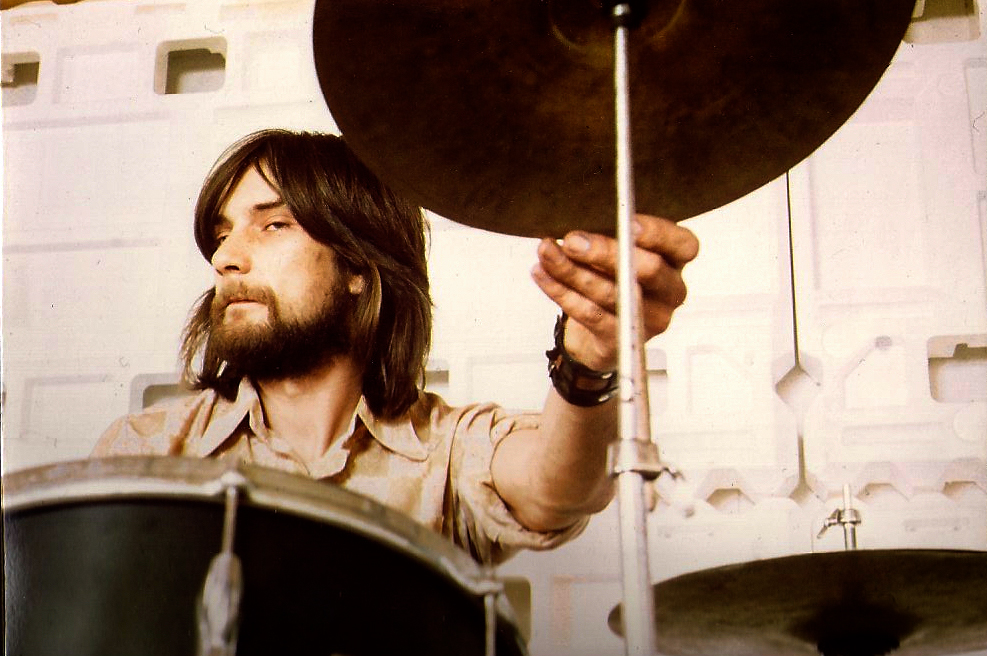
Seelie Court issued a ‘Ages Come And Ages Go’. Was this an unreleased album or a set of unreleased tracks?
Martin Paine: These were unreleased demos.
Paul King: A set of unreleased tracks and, to some extent unfinished, certainly the ones I wrote.
Paul Vincent Myerson: Again fate intervened nearly fifty years later some of the recordings were remastered by Seelie Court Digital and released last Autumn. I’m very proud of my involvement with that band and the music we made.
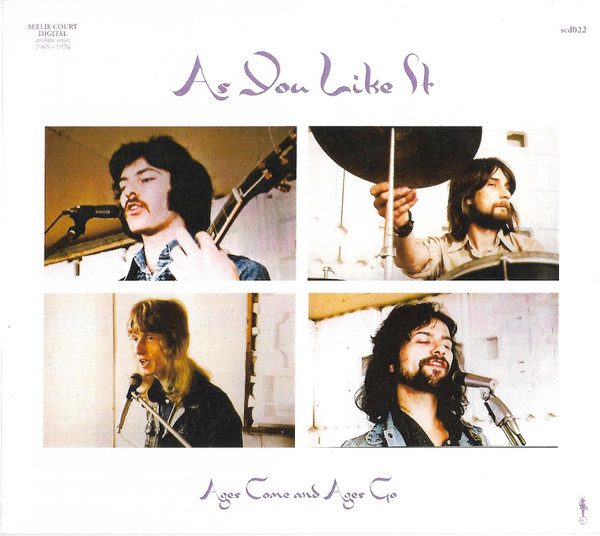
What’s the story behind it? Where did you record those songs? What kind of equipment did you use and who was the producer? How many hours did you spend in the studio?
Martin Paine: The first batch of five tracks, all of which are included on ‘Ages Come, Ages Go,’ were recorded in 1973 on 8-track at RG Jones in Wimbledon. These ended up being self-produced.
The 2nd batch was recorded at New Year 1975 on 16-track at Chalk Farm Studios. The producer was Gerry Dane, who at one time had been involved in the Buddah Records London office. The band were excluded from the mix, which we were never particularly happy with.
Paul King: Some at a studio opposite The Roundhouse where if you put the tape machine on fast re-wind, the left spool took off! Some at RG Jones in Wimbledon. At the time I was playing with a Hayman kit. I’m sure that we produced some of the tracks ourselves, I seem to recall we were in and out in a day, I could be wrong though.
Would you share your insight on the albums’ tracks?
Martin Paine: The recordings were pretty rushed, particularly the backing vocals and harmonies, and there were also some mistakes that we’d have rectified if we‘d had time.
Paul King: Great memories.
Was there a certain concept you had in mind?
Martin Paine: No.
Paul King: Not that I can remember.
What happened after the band stopped? Were you still in touch with other members? Is any member still involved with the music?
Martin Paine: We carried on playing as a covers band for a while and then we stayed loosely in touch and occasionally some combination of us would play together on various demos and in various other bands. I’ve since played pretty constantly with one covers band or another and have played on a number of original music albums over the years, many with Christian songwriter and composer Roger Mayor.
Paul King: I joined a band and toured Norway for around six months. For two months we supported The Tremeloes. I continued to play and still do.
Paul Vincent Myerson: Without a contract the band ultimately dissolved, and I spent a couple of years doing odd gigs with whoever needed keys or bass. I rate myself as a fairly good (if a bit limited) bassist and an adequate keyboardist but I can fit in well with most of the bands I’ve depped with. There was some “partying” as well as performing, one band fired me because of coke. Reason being that I didn’t join them and stuff the evenings taking up my nose at the end of a gig.
Later with rock band Eddie Monsoon we played a residency every Friday at Break for the Border and Borderline off Charing Cross Road. Parking was a nightmare and the gigs were pretty wild!
In 1980 after twelve years in the music business in record companies and music publishers I formed Black Cat Video which precluded me from playing until due to a chance meeting about video production, I met Bob Graham, one of the finest session drummers in the world playing on biggest hits by The Kinks, Dave Clark Five, Van Morrison and Them, even Petula Clark and literally hundreds of artists and countless hit records. His partnership with Jimmy Page as session men was legendary! He’d given up playing due to alcoholism but fortunately began again to some extent. After some persuasion he invited me to play with him and introduced me to so many musicians. The first band I joined consisted of three members of Adam Faiths’ Roulettes, John “Mod” Rogan, Bob Henritt ,and Russ Ballard (he was always a songwriting hero of mine, ‘Since You’ve Been Gone’ and dozens of other hit songs). The band The Organisers’ fronted by Mod Rogan varied in membership, most frequent members Mick Avory of the Kinks, and Jim Rodford (seventeen years with Kinks and Argent), Bob Henritt & Russ. A number of other names, mainly from sixties bands would join, one memorable occasion I played a reunion gig with Unit Four plus Two. (The “plus two” were Russ and Bob Henritt). It was great to play ‘Concrete And Clay’ with them.
Bob Graham decided to “educate” the very young generation about rock ‘n roll music, and with Alan Warner, (founder member of The Foundations) and me toured dozens of primary schools, Bob telling stories of his own experiences in the business (how he nearly joined The Beatles for one) TV, and the band playing the progression of music from skiffle to present day. The kids were encouraged to join in on percussion and to dance wildly! Most uplifting gigs!
In the late eighties I was commissioned to write music for a business convention in USA, so I travelled to Detroit and spent three days recording in the studio of Bob Segers’ keyboard player, he supplied all the musicians and vocalist Mitch Ryder (of Mitch Ryder and the Detroit Wheels), and a lady who’s name I can’t recall but she was a backing vocalist for Eric Clapton. Enjoyable session. Mitch insisted I write alternate lyrics to the company song, which I completed in the back room of the studio in ten minutes and he recorded a new vocal. The following month I went to the company (NAPA car parts) convention for the enormous show in The Las Vegas Hilton for the performance of the music.
For a couple of years I played with The Dreamers, a residue of Freddie and the Dreamers. Most gigs were in the holiday parks around the east coast, mostly which entailed leaving home at 2pm. driving for two or more hours, setting up, soundchecking at 5pm, hanging about till playing nine till midnight, waiting for the resident DJ to finish at 1.30 before de-rigging, loading the van and getting home at 4am or later. Money seemed good but broken down, not much per hour. After a somewhat acrimonious relationship with the band I quit, owed about 2.5K gigging monies.
In 2013 while with Alan Warner doing duo gigs, he invited me to his residency in Torrevieja, to which I returned after a fortnight in the UK and bought an apartment in the same block. I quickly learnt that there were hundreds of fine musicians and many working bands in a comparatively small area, it didn’t take long to realise my future lay in Spain. I’ve had the privilege of playing with some super bands here, as well as nearly ten years with The Covers Brothers, and I’ve found I get as much enjoyment playing as I ever did. So, ok I never did make it to “Big Time,” maybe nearly as I had plenty of opportunities and friends and acquaintances who did, but I’ve no big regrets and love playing as much as ever.
Looking back, what was the highlight of your time in the band? Which songs are you most proud of? Where and when was your most memorable gig?
Martin Paine: Playing with such great musicians and songwriters. I was always very proud of what we’d achieved.
Paul King: I’m most proud of ‘Ages Come, Ages Go’ and ‘No More Sunshine Till May’. I always felt that the tracks I tried writing were never finished, mainly in terms of lyrics.
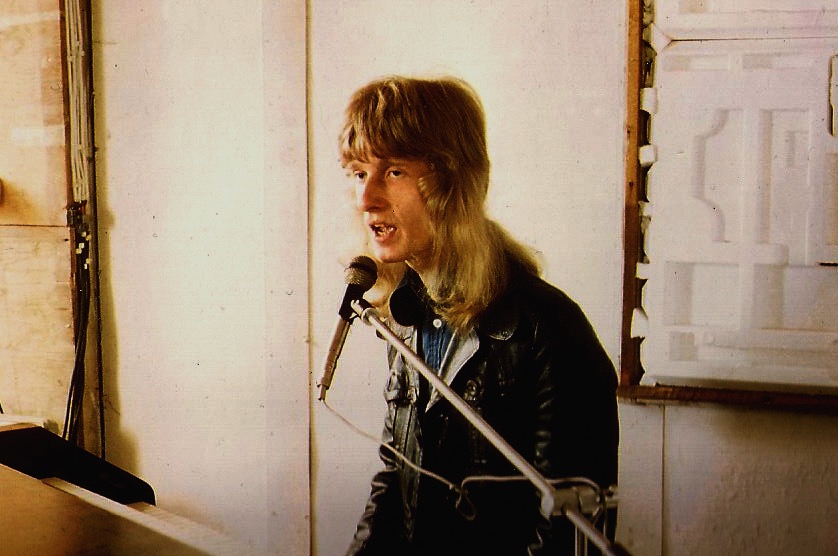
Is there any unreleased material left?
Martin Paine: There are some remaining tracks from the 2nd batch, plus some other demos of songs written by myself and Paul Vincent Myerson that were not necessarily intended for the band…we’re talking to Seelie Court about the possibility of getting some of these released at a later date. There were a load of other original songs that were not studio-demoed and that have been lost in the mists of time.
Paul King: Yes!
Klemen Breznikar

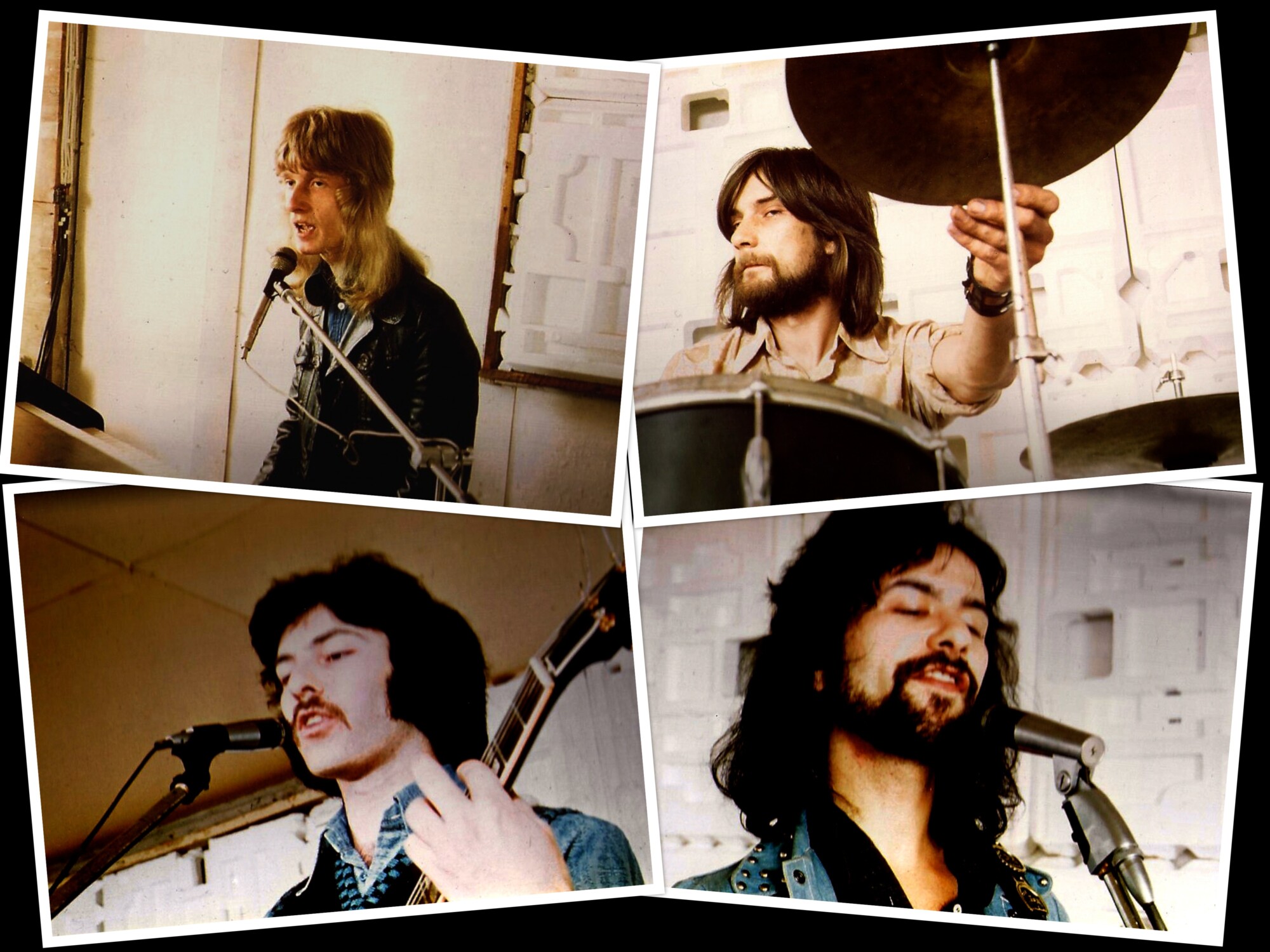
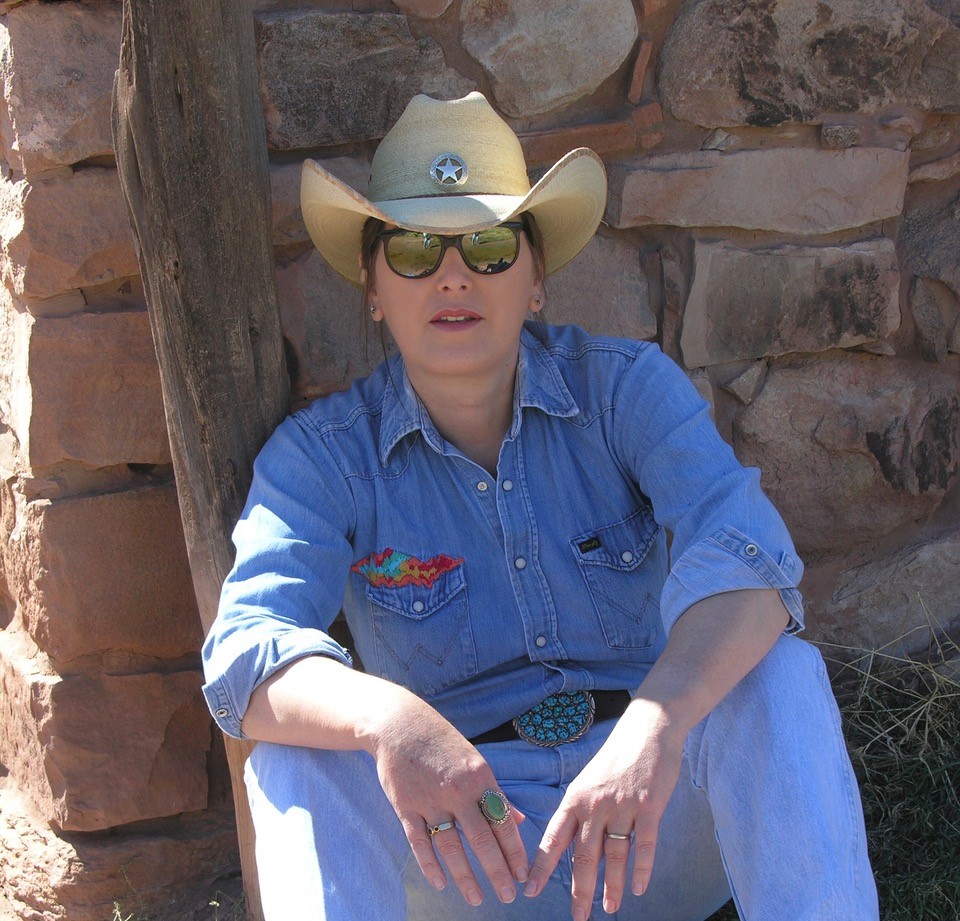
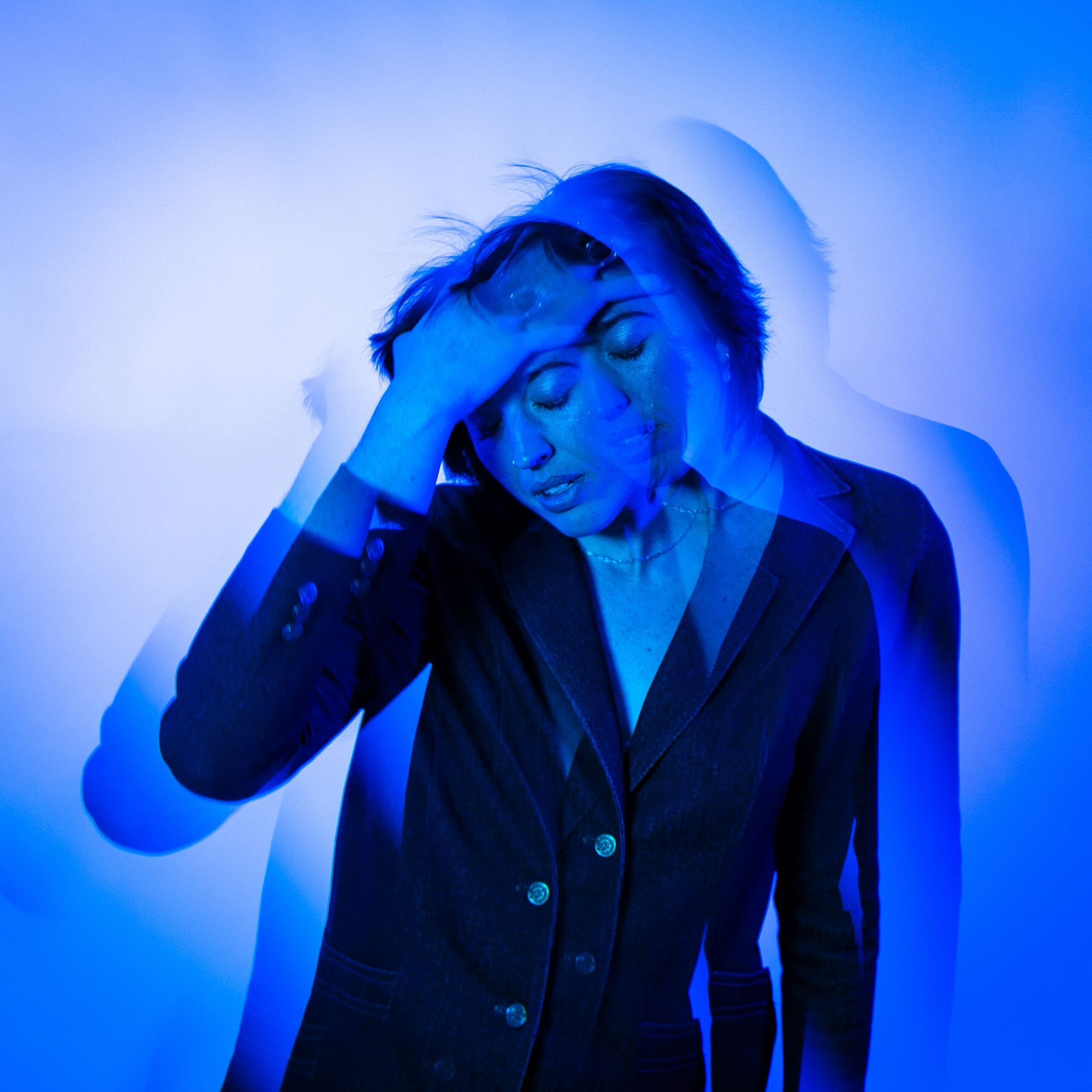
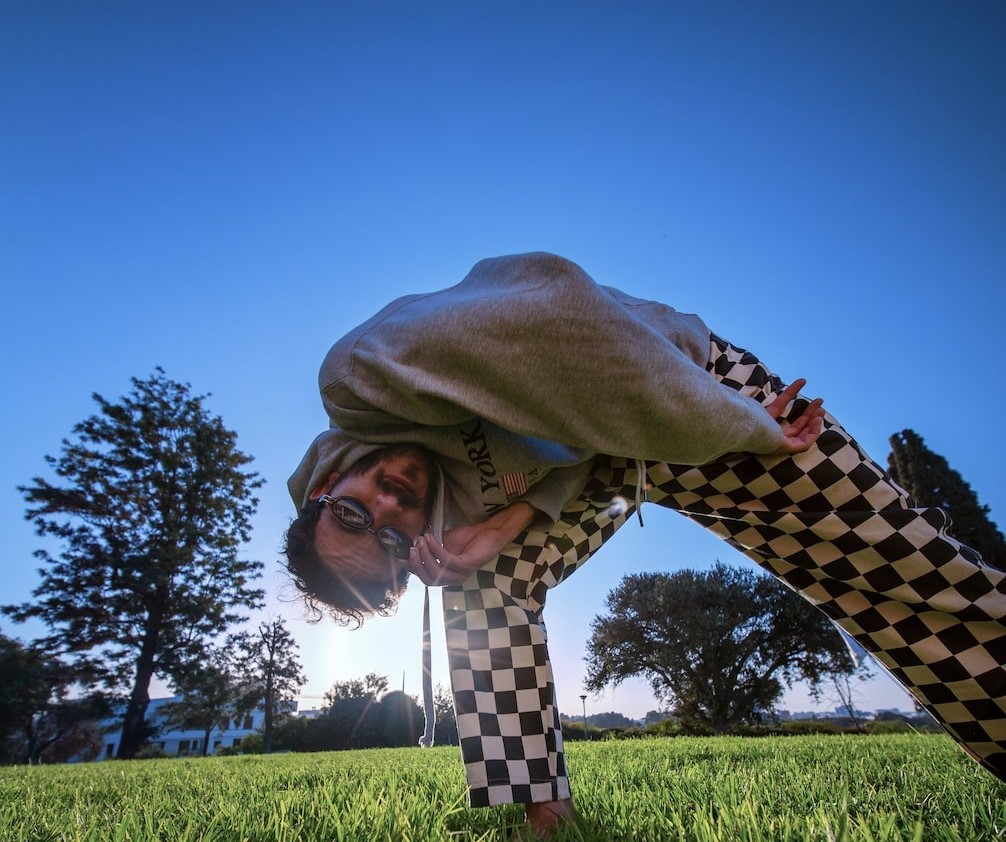
Has anyone got a contact number for Paul king , I brought his Hayman drum kit and an eko guitar from him and would like to contact him
Can’t wait these remaining tracks on a next record ! I’ ve bought the first cd of “As you like it” and it’s really a famous progressive rock near Fantasy and the others bands described above !